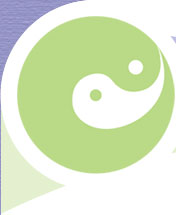herbal medicine
 |
Chinese Herbal Medicine
Herbal medicine is an integral component of traditional Chinese medicine (TCM). It is also one of the oldest (and most popular) forms of health care. Though the scientific study of herbs in the United States began just over two centuries ago, herbs and botanicals have been used to treat a wide range of health problems in Asia for thousands of years. Today, as many as one-third of American adults uses herbal products. When used to facilitate healing in chronic, ongoing problems, herbal medicine has a great deal to offer. Studies have shown that herbal products can treat a variety of conditions, including colds, digestive disorders, insomnia, headaches, arthritis, skin disorders, asthma, and a host of other problems usually treated with pharmaceuticals and prescription medications.
Herbal Medicine and Modern Pharmacology
There is a growing body of research indicating that traditional uses of plant remedies coincide with contemporary pharmacological principles. However, herbal medicine is distinct from medicine based on pharmaceutical drugs. Firstly, herbal medicine is far less likely to cause side effects. Secondly, because Chinese herbs are typically prescribed in combination, the different components of a formula balance each other. The herbs undergo a mutual synergy which increases efficacy and enhances safety. Thirdly, herbal medicine seeks primarily to correct internal imbalances rather than to treat symptoms alone. This therapeutic intervention is designed to encourage the self-healing process.
Because herbs have been know to occasionally interact with pharmaceutical drugs, it is important to list all medications in the Health History Questionnaire before beginning treatment. Formulas can be modified so as to minimize the possibility of adverse interactions.
What Can Chinese Herbal Medicine Treat?
Chinese medicine is successfully used for a very wide range of conditions. Among the more commonly treated disorders are:
- Skin diseases
Eczema, psoriasis, acne, rosacea, urticaria - Gastrointestinal disorders
Irritable bowel syndrome, chronic constipation, ulcerative colitis - Gynecological conditions
Pre-menstrual syndrome, dysmenorrhoea, endometriosis, infertility - Hepatitis and HIV
Some promising results have been obtained for treatment of Hepatitis C, and supportive treatment may be beneficial in the case of HIV - Chronic Fatigue Syndrome/Fibromyalgia
Whether with a background of viral infection or in other situations - Respiratory conditions
Asthma, bronchitis, and chronic coughs, allergic and perennial rhinitis and sinusitis - Musculoskeletal/Rheumatological conditions
Hematomas, osteoarthritis, rheumatoid arthritis, sport injuries - Urinary conditions
Chronic cystitis, UTI - Psychological problems
Depression, Anxiety
Many of these conditions, especially in their chronic forms, create great difficulty for conventional medicine, while Chinese herbal medicine has a great deal to offer. The results that can be expected and the length of treatment required will depend on the severity of the condition, its duration, and the general health of the patient.
The Chinese medical tradition as a whole places great emphasis on lifestyle management in order to prevent disease before it occurs. Chinese medicine recognizes that health is more than just the absence of disease and it has a unique capacity to maintain and enhance our aptitude for well being and happiness.





